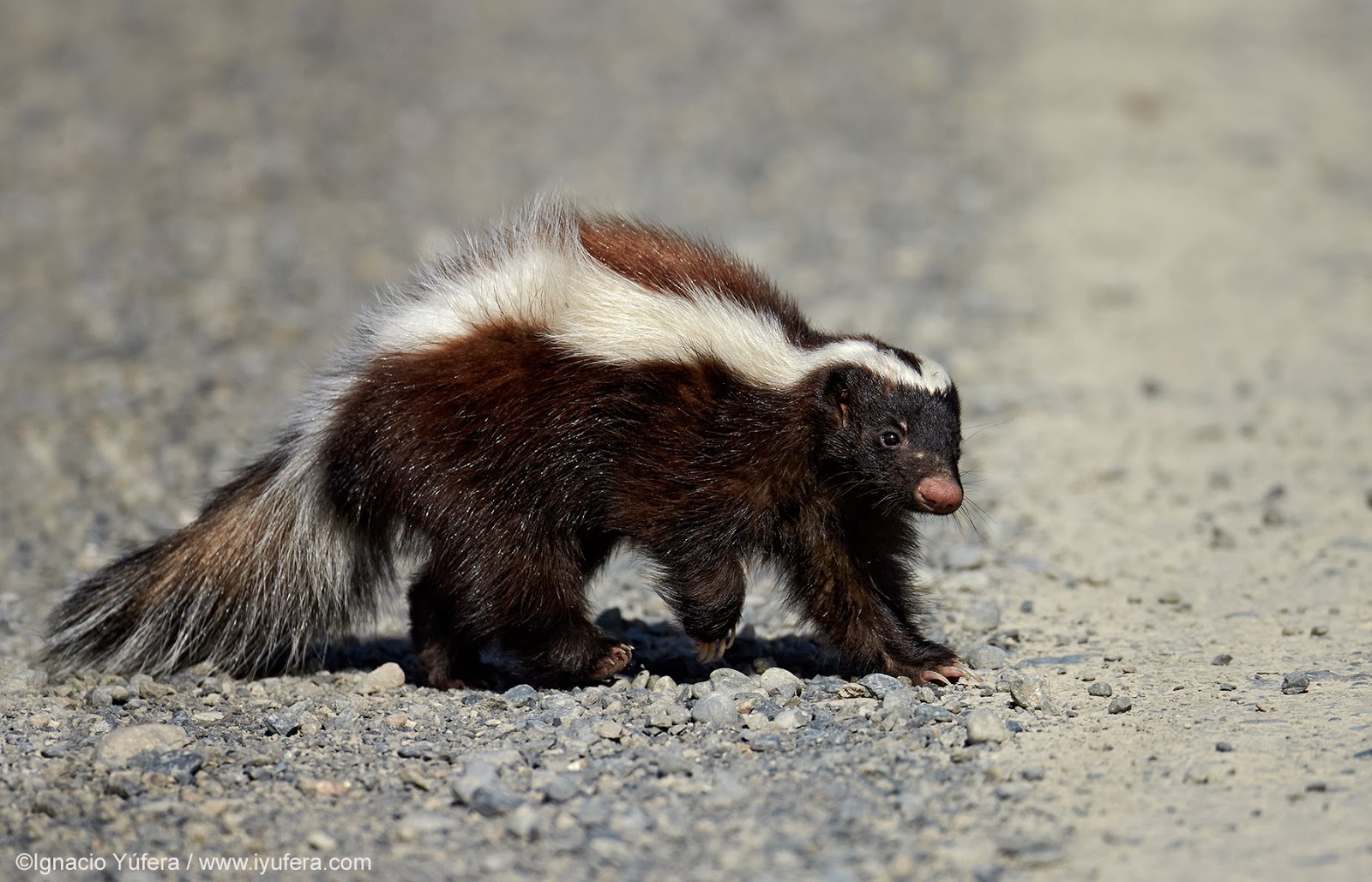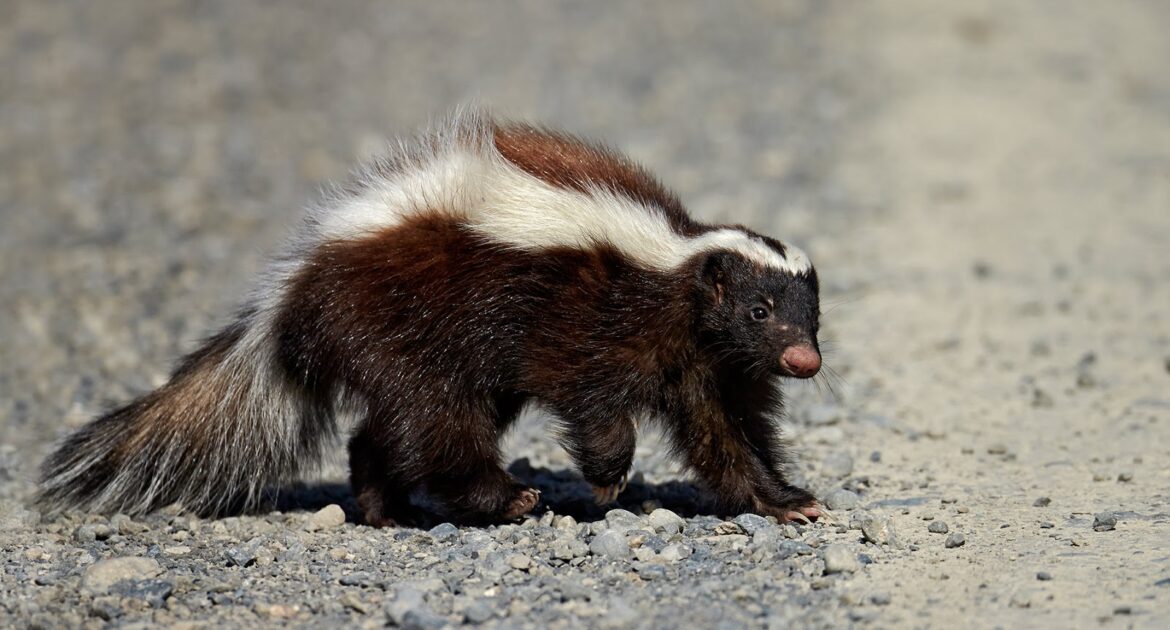Skunks and humans have an uneasy relationship with one another. Many people mistakenly believe that skunks are actively trying to attack them with their smelly spray, which is not true at all. In interactions with humans, skunks are docile creatures that prefer not to spray and do so only when they have given ample warning and there is no other alternative. Skunks do not belong in human habitations, so if you find a family of them living in your home, it is time to call for humane skunk removal.
While skunks are fearful of humans, snakes are another matter. Rattlesnakes and their other venomous cousins are animals that humans fear, with good reason. Skunks, however, have no fear of snakes and can literally eat them for lunch.
Skunks Eat Snakes
Skunks are omnivorous and can eat a varied diet. Because of this, skunks can benefit humans in ways you may not realize. Their favorite foods are worms and grubs, as well as insects such as grasshoppers or beetles, all of which can be potentially harmful to humans and their favorite garden plants. Of course, that doesn’t mean that you want a skunk living on your property. In addition to their foul odor, skunks also dig up lawns looking for their favorite foods, so it is best to keep them at a distance.
While skunks prefer small, invertebrate prey, they are capable of eating larger animals as well. These include mice and other small rodents, as well as frogs and snakes.
Rattlesnakes have their own defenses that are often pretty effective. They have loose scales at the end of their tails that they can shake to send a warning to potential predators. However, skunks are not intimidated by either the warning sound or the venomous bite. In a fight between a rattlesnake and a skunk, the snake is more likely to lose.
Skunks Are Immune to Snake Venom
So, what happens when the skunk gets a bellyful of a rattlesnake’s venom glands? Does eating the snake’s venom affect it in any way? Does the skunk poison itself and the snake get its posthumous revenge?
No. It turns out that skunks are immune to snake venom. This means that they aren’t harmed from either the bite of the snake or by ingesting it.
Immunity to snakes seems to be a trait that runs in the skunks’ family. Mongooses are distantly related to skunks and some species are also immune to snake venom, their reputation as snake predators being celebrated in song and story.
There are a handful of creatures that are immune to snake venom, and while a few are prey animals, those are the exception rather than the rule. Most animals with immunity to snake venom are predators that feed on them. The ability likely evolved because animals that were able to shrug off the toxic effects had a much wider variety of food from which to choose and therefore a better chance of surviving when food gets scarce. The animals that survive then have a better chance of reproducing and passing their helpful traits onto their offspring.
Skunks Have Good and Bad Qualities
If skunks are such badass predators that help rid the world of rodents and snakes, why wouldn’t you want them on your property? For all their good qualities, skunks don’t make very good houseguests.
There is the unavoidable issue of the smell. Skunks conserve their spray because it takes their bodies longer to make more after it has been depleted. Nevertheless, they do spray occasionally, such as during the mating season.
Skunks can also carry rabies, a fatal disease that can also infect humans and pets. While a healthy skunk is not inclined to bite unless provoked, a rabid skunk may become more aggressive.
If you find skunks on your property, call Skedaddle for wildlife control in Milwaukee. We can remove the skunks humanely and clean up your property afterward. Find out more about the exclusion process.




